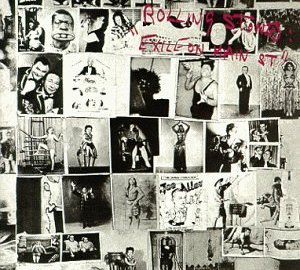Hedonomics I: Happiness Is Easy

Love. Sex. Space. Coke. (Coke?) Discretion. Indiscretion. Family. Fame. Privacy. Puppies. The Rolling Stones. One man’s happiness is, axiomatically, not another’s, and so the riddle of what brings us peace in ourselves and in our communities remains, Sphinx-like, perpetually fascinating—for novelists, perhaps not, but for other writers and, increasingly, for economists.
In her piece on policy and happiness in this week’s New Yorker, “Everybody Have Fun,” Elizabeth Kolbert outlines the ramifications for (what we call) happiness to the macro-economy. If French President Sarkozy hired Amartya Sen and Joseph Stieglitz to study the implications of a happy people for a thriving economy, perhaps we should listen to what they learned.
Kolbert concludes that our cities are not unlike ourselves, both in yearning for more as well as in fundamentally misunderstanding what Wanting More means. She writes:
If happiness research simply confirmed what people already believed, there would be no need, and really no reason, to argue for its relevance. It’s the counterintuitive cast of the results that makes the work provocative and “the politics of happiness” worth thinking about. As the studies make clear, the same sorts of mistakes that individuals are prone to are widely replicated on a national level. People place their hopes on higher incomes, countries on higher G.D.P., and both end up disappointed. (Indeed, according to Graham, rapid economic expansion is just as likely to reduce happiness as the reverse, a situation that she refers to as “the paradox of unhappy growth.”)
The idea that happiness research should at least be considered by policymakers is, increasingly, a mainstream position. Two years ago, the President of France, Nicolas Sarkozy, appointed a commission to look into ways to improve the measurement of government performance. When the commission, headed by Amartya Sen and another Nobel Prize-winning economist, Joseph Stiglitz, issued its final report, last fall, it was critical of the current reliance on G.D.P., which, it argued, is a poor proxy for social progress: “For example, traffic jams may increase G.D.P. as a result of the increased use of gasoline, but obviously not the quality of life.” The group recommended that a wide variety of new statistical tools be developed, including ones that measure income distribution, natural-resource depletion, and happiness.
“The counterintuitive cast of results.” Yes, plus this irony: that we cannot study to learn it; happiness is not a sport. It’s an emotion.
While we wait for the Nobel Laureates to tell us more, here are two of the greatest bands that ever played, in two of the greatest songs they ever wrote, both about happiness. Check them out here, and here (this one’s due for reissue in May), and see if you don’t feel a little bit…happier.





